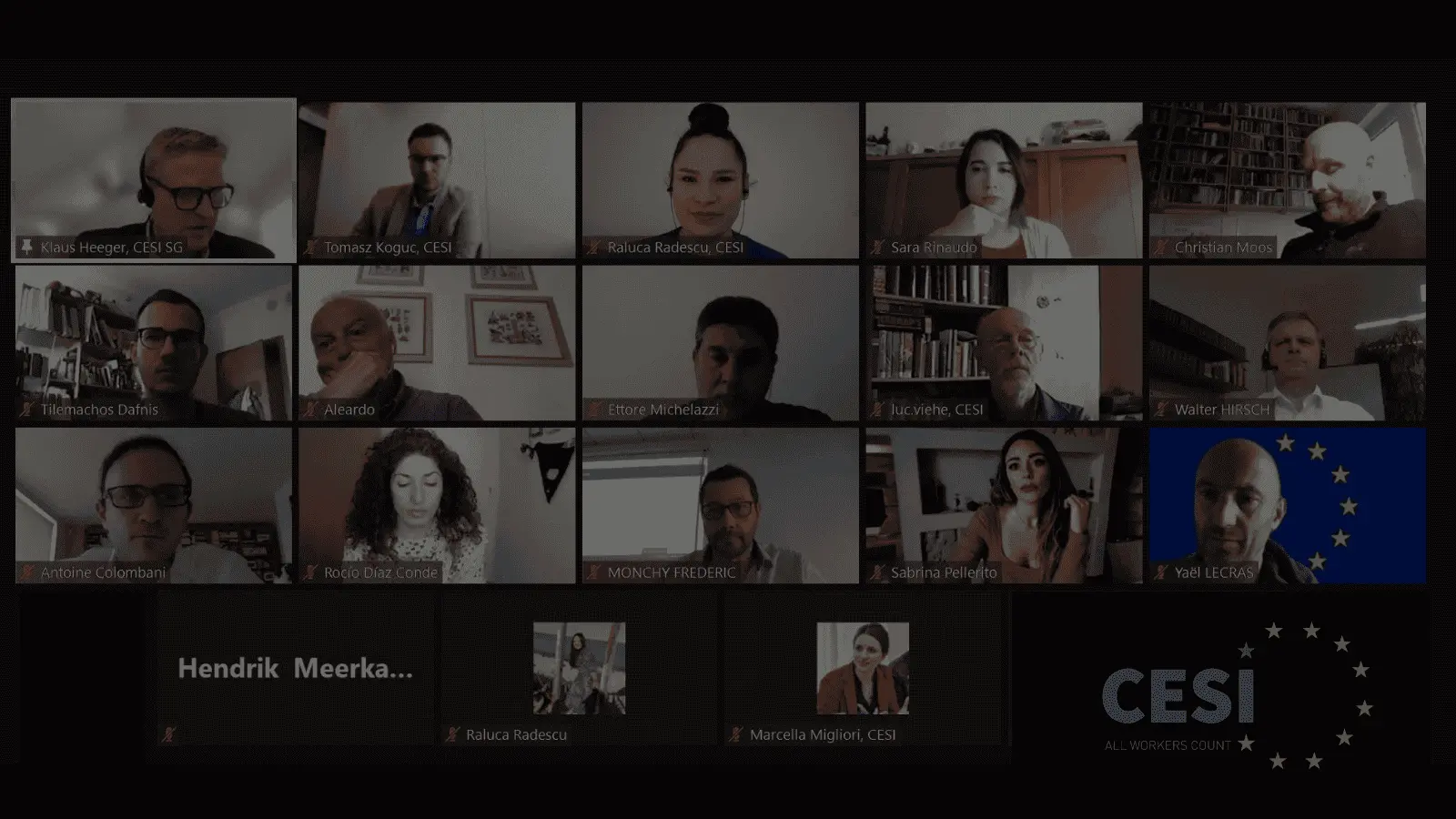CESI@home on the European Green Deal: How to bring the environmental and the social together?




On May 12, CESI held an online discussion on the initiative of the European Commission for a “Green Deal”, the political commitment towards a carbon-neutral Europe by 2050.
The aim of our CESI@home event was to identify the potential impacts of the ambitious Green Deal on employment, workers and EU citizens at large. Trade union experts and policy makers met online to discuss issues such as: How can be ensured that green policies will also be socially just? Which is the role of the trade unions generally and public sector unions in particular in managing the Green Deal in socially acceptable way? Which is the relevance of trade union actions in the implementation of green targets?
Antoine Colombani, member of the Cabinet of European Commission Executive Vice President Frans Timmermans, presented the content of the Green Deal, and related proposals and targets of the European Commission in this respect. Mr. Colombani also commented on the need for a climate-neutral economy that preserves ecosystems and on the importance of a socially just green transition in the context of the EU’s Corona crisis recovery strategy.
Sara Rinaudo, an expert from CESI’s Italian member union CONFSAL and also member of the Board of the CESI Youth and chair of CESI’s Working Group on the Future of Work, explained the role of trade unions in the Green Deal. Ms. Rinaudo noted the importance for trade unions to keep high on the agenda the topic of green policies and added that in this transition, trade unions should take into consideration that:
-There are not only short-term but also long-term opportunities and challenges.
-The green transition will profoundly reshape the labor market and the organization of work and therefore we need to think about targeted social protection schemes for those people who will be hit the most by the negative repercussions of the transition.
-Well-functioning information and consultation mechanisms will be essential for trade unions to better anticipate strategic, economic and technological changes and their impact.
-The transition towards a low-carbon economy is expected to have very strong implications in terms of competences and skills. Potentially, it may affect a great number of workers, raising the need for new skill profiles, lowering the demand for others. Ensuring a fair and just transition will require an evolvement of training and educational systems but also active labor market policies targeting employment creation, training and lifelong learning and trade unions will have a key role in that.
-Trade unions should help steer public opinion: a real sustainable living and working can happen also by a collective and individual cultural shift.
Christian Moos from the German Civil Servants Association (DBB) and member of the European Economic and Social Committee (EESC) presented recent developments in the area of green policies in Germany and confirmed that environmental policies are now an integral part of the German political agenda. Furthermore, he highlighted the challenges and opportunities of this transition for the public sector and the respective trade unions.
CESI Secretary General Klaus Heeger concluded that trade unions have a fundamental role in the green transition process: to guarantee that it happens in a socially fair way that respects European citizens and particularly workers. He added that CESI will work hard towards protecting the most vulnerable in this new era.

Image Gallery
CESI@home on the European Green Deal: How to bring the environmental and the social together?
Related videos
Similar Posts
Get in touch
with us
Confédération Européenne des Syndicats Indépendants (CESI)
Contact form
Stay up to date
Don’t miss a thing and subscribe to our newsletter
Subscribe now and receive newsletters and much more!



.jpg)
.jpg)